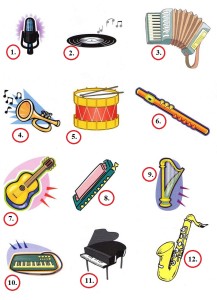A collection of useful vocabulary for newspapers. These words can be used for talking or writing about newspapers. There is also an audio for each section to help you improve your pronunciation. This topic can come in all parts of the IELTS speaking test, writing task 2 and also listening and reading. It’s well worth learning this useful newspaper vocabulary.
Types of Newspapers
- tabloids = gossip newspapers
- broadsheets = newspapers printed on large sheets which are usually considered more serious
- daily / weekly / monthly newspapers = papers printed once a day / once a week / once a month
- quarterly newspapers = newspapers printed once every 3 months
- heavy newspaper = a newspaper with serious content
- gutter press = newspapers which focus on sensational journalism, often about the lives of famous people
- periodical = a newspaper or magazine published at regular intervals
- local / regional newspaper = a newspaper which contains news from a particular area
- national newspaper = a newspaper which contains news from the whole country
Newspaper Content
- headlines = heading or title appearing at the top of a page or article
- columns = news that is printed in vertical columns rather than taking a whole page
- obituaries = a section in the newspaper about people who have recently died
- horoscope = a section in the newspaper about star signs and zodiac signs which foretell the future
- weather report = a section in the newspaper for weather forecasts
- business section = a section in the newspaper with business news
- international / world news section = a section in the newspaper which focuses on news from abroad
- caption = a explanation or title matching a picture or cartoon
- letter to the editor = a section in the newspaper for people to express their views to the editor of the newspaper
- special feature = a special story
- editorial = a news article containing the editor’s opinions
- comic strip = a cartoon series in the newspaper
- advice column = a column in the newspaper where advice is given to people who write in for it
- TV guide = a section in the newspaper with a guide for TV programs for the coming day or week
Other Useful Vocabulary for Newspapers
- circulation = the number of copies a newspaper distributes on an average day (some newspapers have a wider circulation than others)
- edition = a particular version of a text
- layout = the way articles are designed on a page (this can include the position of pictures, the number of columns and the size of headlines)
- attention-grabbing = a news story which draws public attention
- eye-catching = a picture or layout which catches a person’s eye
- in-depth = with many details
- sensational news = news which causes public excitement or interest
- black and white = without colour
- direct quotation = words taken directly from what a person has said
- paparazzi = a freelance photographer who follows celebrities
- front page = the first page of a newspaper
- supplementary magazine = a magazine which sometimes is given free with a newspaper
- back issue = an old newspaper edition
- subject matter = the topic dealt with in an article
- proof reader = a person who checks a text for errors
- fact checkers = a person (people) who checks if the newspaper facts and information in an article are correct
- hot off the press = news that has just been printed and is very recent
- readership = the collective readers of a newspaper (some newspapers have a large readership)
- issue (n) = 1. an important topic for a debate 2. a copy of a newspaper
Practice with Newspaper Vocabulary
Fill in the following sentences with word(s) from the above lists. Words can be adapted to make the sentences grammatically correct.
Try to fill in the answers before you listen to the audio below.
- I can’t understand why people buy ……………….. because they don’t contain real news, just gossip.
- Famous people deserve the right to privacy and the government should do more to control and limit ……………
- There are so many mistakes in that article with information that they’ve got wrong. They really should employ a …………….
- I’m not keen on the …………… of some newspapers. It seems to me as though they are trying to fill the pages with pictures and big words to get people’s attention but I just think it’s messy.
- Did you read about that amazing hero in WWII that recently died? There was a wonderful article about her life in the …………….. today.
- The reason that many people only glance through the papers to read the ……………….. is that they are so busy and don’t have time to read the details in the articles themselves.
- Although we live in a global world, where international news is important to follow, it is still vital that people read their ……………… newspapers in order to learn about the community in which they live.
- I quite like reading …………… because it’s interesting to read the views of the editor on particular issues.
Listen to the full sentences to check your answers.
Answers- tabloids
- paparazzi (it is also possible to have the answer of “the gutter press”)
- fact checker
- layout
- obituaries
- headlines
- regional / local
- editorials
Error Correction
Find the mistakes in the following sentences. There is one mistake in each sentence.
- The paparazzi, who work freelance, are notorious for hound celebrities.
- Gutter press focuses on mainly sensational news.
- Tabloid are not popular newspapers among the educated people in my country.
- Fact checkers do important work and are responsible to make sure that people are quote correctly in articles.
- The recent article about marine environmental problems is hot of the press.
- For my research, I had to go through a lot of back issues of various newspapers to find the articles relate to my degree thesis.
- I’m pleased that newspapers are starting to include some colour photographs and pictures because it makes the articles more interesting and eye-catch.
- One of my favourite parts of a newspaper is the comic strip because I find the message in the cartoons so relevent to the major issues of the day.
- hound = hounding (chasing)
- Gutter press = The gutter press
- Tabloid = Tabloids
- quote = quoted
- hot of the press = hot off the press
- relate = relating
- eye-catch = eye-catching
- relevent = relevant
Recommended










